

Articles
How To Store Russet Potatoes
Modified: October 19, 2024
Looking for articles on how to store russet potatoes? Learn the best techniques and tips for keeping russet potatoes fresh and flavorful.
(Many of the links in this article redirect to a specific reviewed product. Your purchase of these products through affiliate links helps to generate commission for Storables.com, at no extra cost. Learn more)
Introduction
When it comes to potatoes, the russet potato reigns supreme. With its dense and starchy texture, it is the go-to variety for baking, mashing, and frying. But what do you do when you have a surplus of russet potatoes and want to store them for future use? Proper storage is crucial to maintain their quality and prevent them from spoiling.
In this article, we will delve into the art of storing russet potatoes, exploring the best methods and conditions to ensure their longevity. Whether you have a root cellar, a pantry, a basement, a refrigerator, or a freezer, we have you covered. Let’s explore the various options and learn how to properly store russet potatoes to keep them fresh and delicious for as long as possible.
Key Takeaways:
- Properly storing russet potatoes is crucial for maintaining their freshness and flavor. Choose high-quality potatoes, prepare them for storage, and store them in ideal conditions to extend their shelf life.
- Whether you have a root cellar, pantry, refrigerator, or freezer, there are storage options available to suit your needs. Regularly inspect stored potatoes, keep them dry, and avoid exposure to light and ethylene-producing fruits to preserve their quality.
Choosing the Right Russet Potatoes
Before we dive into storage techniques, it’s essential to choose high-quality russet potatoes for optimal results. When selecting russet potatoes for storage, keep the following pointers in mind:
- Size: Choose medium to large-sized potatoes, as they tend to store better than small ones.
- Texture: Look for russet potatoes with a smooth and firm texture. Avoid potatoes with wrinkles, soft spots, or any signs of decay.
- Color: Opt for potatoes with a uniform light brown color. Avoid any green discoloration, as it indicates the presence of a chemical called solanine, which can be toxic when consumed in large quantities.
- Sprouting: Check for any sprouts on the potatoes. While a few small sprouts can be trimmed off, extensive sprouting can be a sign of aging and may affect their storage life.
By choosing high-quality russet potatoes, you set the stage for successful storage and long shelf life. Now that you’ve selected your potatoes, let’s move on to preparing them for storage.
Preparing Russet Potatoes for Storage
Before storing your russet potatoes, it’s important to properly prepare them to ensure their longevity. Follow these steps to prepare your potatoes for storage:
- Clean: Start by gently brushing off any dirt or debris from the potatoes using a soft brush or cloth. Avoid using water unless absolutely necessary, as excess moisture can promote rotting.
- Cure: Curing is a process that allows the potatoes to develop a thicker skin and heal any minor injuries. Place the cleaned potatoes in a cool, dark, and well-ventilated area with a temperature of around 50 to 60°F (10 to 15°C) and a humidity level of 85 to 95%. Allow the potatoes to cure for about two weeks before storing them.
- Sort: Examine your potatoes for any damaged or diseased ones. Remove these potatoes from the batch, as they can affect the quality of the rest.
- Shed Excess Moisture: To prevent moisture buildup, which can lead to rotting, allow the potatoes to air dry for a few hours after the curing process. This will help remove any excess moisture on the surface of the potatoes.
- Avoid Cutting: Do not cut or slice the potatoes before storing them. Cutting them exposes more surface area, increasing the risk of spoilage.
By following these preparation steps, you ensure that your russet potatoes are clean, dry, and ready for storage. Now, let’s explore the different storage methods and conditions for your russet potatoes.
Ideal Storage Conditions for Russet Potatoes
To keep your russet potatoes fresh and flavorful, it’s crucial to store them in ideal conditions. Consider the following factors when determining where to store your potatoes:
- Temperature: The ideal temperature for storing russet potatoes is between 45 and 50°F (7 and 10°C). Avoid storing them in areas where the temperature fluctuates significantly or becomes too warm, as this can cause sprouting or accelerated spoilage.
- Humidity: Potatoes prefer a high humidity environment of around 85 to 95%. This helps to prevent them from drying out and shriveling. However, excessive humidity can lead to mold or rot, so proper ventilation is necessary.
- Light: Russet potatoes should be stored in a dark environment, away from direct light. Exposure to light can cause them to turn green and produce solanine, a harmful substance. Use opaque containers or place them in a dark corner of your storage area.
- Air Circulation: Adequate air circulation is essential to prevent the buildup of moisture and the growth of mold. Avoid storing potatoes in sealed plastic bags or airtight containers. Instead, use breathable containers or open baskets to allow air to circulate.
Now that you understand the ideal storage conditions for russet potatoes, let’s explore the different storage options available, depending on the facilities you have.
Storing Russet Potatoes in a Root Cellar
If you are fortunate enough to have a root cellar, it is an excellent environment for storing russet potatoes. Root cellars provide cool, dark, and humid conditions that help to extend the shelf life of potatoes. Here’s how to store russet potatoes in a root cellar:
- Prepare the Space: Ensure that your root cellar is clean, well-ventilated, and free from pests. Remove any spoiled produce or debris that could affect the quality of your potatoes.
- Sort and Arrange: Sort your russet potatoes and remove any damaged or diseased ones. Place the potatoes in a single layer, avoiding overcrowding, as it can lead to increased moisture and rotting.
- Create Humidity: Maintain the desired humidity level by placing trays or buckets of water in the root cellar. This will help to keep the environment moist, preventing the potatoes from drying out.
- Monitor Temperature: Regularly check the temperature in your root cellar to ensure it stays within the recommended range of 45 to 50°F (7 to 10°C). Consider using a thermometer to keep track of the temperature accurately.
- Inspect Regularly: Check your stored potatoes periodically for any signs of spoilage or sprouting. Remove any potatoes that show signs of decay to prevent it from spreading to the rest of the batch.
Storing russet potatoes in a root cellar can provide an excellent environment for long-term storage. The cool temperature, darkness, and humidity mimic the conditions found in the ground where potatoes naturally grow, helping to preserve their quality for an extended period.
Read more: How To Store Fingerling Potatoes
Storing Russet Potatoes in a Pantry or Basement
If you don’t have a root cellar, storing russet potatoes in a pantry or basement can be a suitable alternative. Here’s how to store russet potatoes in a pantry or basement:
- Choose a Cool and Dark Location: Find a cool and dark spot in your pantry or basement to store your potatoes. Avoid areas that receive direct sunlight or experience significant temperature fluctuations.
- Prepare the Storage Area: Clean the storage area to remove any dust, debris, or potential contaminants. It’s essential to maintain a clean environment to prevent the growth of mold or bacteria.
- Sort and Arrange: Sort your russet potatoes and remove any damaged or spoiled ones. Place the potatoes in well-ventilated containers or baskets, ensuring they are not piled too high to allow for proper air circulation.
- Check Regularly: Periodically inspect your stored potatoes and remove any that show signs of deterioration. This will help prevent spoilage from spreading to the rest of the potatoes.
While pantries and basements may not offer the same level of humidity control as root cellars, they can still provide adequate storage conditions for russet potatoes. Monitoring the temperature and ventilation in these areas is crucial to maintain the quality of your stored potatoes.
Remember to keep an eye on the potatoes and use them in a timely manner to ensure they are enjoyed at their best.
Store russet potatoes in a cool, dark place with good ventilation, such as a pantry or cellar. Avoid storing them near onions, as they can cause the potatoes to spoil faster. Check for any sprouting or soft spots regularly and remove any bad potatoes to prevent them from spoiling the rest.
Storing Russet Potatoes in a Refrigerator
While refrigerators are not the optimal storage option for russet potatoes due to the cold temperatures, they can still be used for short-term storage. Here are some guidelines for storing russet potatoes in a refrigerator:
- Choose the Right Spot: Select a dry section of your refrigerator, preferably the crisper drawer, where the temperature is slightly warmer. Avoid storing potatoes in the freezer compartment, as the extremely low temperatures can cause the starches to convert into sugars and affect their flavor and texture.
- Keep Them Dry: Moisture is the enemy of stored potatoes, so make sure they are completely dry before placing them in the refrigerator. Dampness can lead to rotting, so avoid washing the potatoes unless you plan to use them immediately.
- Wrap Individual Potatoes: To prevent the potatoes from absorbing odors and moisture from other foods in the refrigerator, you can wrap them individually in paper towels or place them in a perforated plastic bag. This helps maintain their freshness and prevents them from sprouting.
- Use Them Promptly: Since refrigeration can cause the starch in potatoes to convert to sugars more quickly, it’s best to use refrigerated russet potatoes within a week or two to maintain their taste and texture.
While refrigeration can help extend the shelf life of russet potatoes for a short period, it is not the ideal long-term storage solution. The cold temperatures can alter the texture and flavor of the potatoes over time. Therefore, if you have a large quantity of russet potatoes, it is recommended to explore other storage options like a root cellar, pantry, or basement.
Now, let’s discuss another storage option: freezing russet potatoes.
Storing Russet Potatoes in a Freezer
Freezing russet potatoes is a great way to preserve them for a longer period. While freezing alters their texture, they can still be used in various cooked dishes. Here’s how to properly store russet potatoes in the freezer:
- Prepare the Potatoes: Start by washing and peeling the potatoes, if desired. Cut them into your desired shape, such as cubes or slices, or leave them whole if you prefer.
- Blanching: Blanch the potatoes in boiling water for 3-5 minutes, depending on their size. Blanching helps preserve the flavor, texture, and color of the potatoes and also helps to inhibit the enzyme activity that can cause them to darken.
- Cool and Dry: After blanching, quickly transfer the potatoes to an ice bath to cool them down. Once cooled, pat them dry to remove excess moisture.
- Package and Label: Place the blanched and dried potatoes in airtight freezer bags or containers. Make sure to remove any excess air from the bags before sealing them. Label the containers with the date for future reference.
- Freeze: Place the potatoes in the freezer, ensuring they are arranged in a single layer and not stacked on top of each other. This allows for faster freezing and easy retrieval later on.
When you’re ready to use the frozen russet potatoes, simply take out the desired amount and thaw them in the refrigerator overnight or defrost them in the microwave. They can be used in various cooked dishes like soups, stews, casseroles, or roasted preparations.
Keep in mind that frozen russet potatoes may have a slightly different texture compared to fresh ones. They might become soft and lose some of their original crispness. However, their flavor and nutritional value are still intact, making them a convenient option for future meals.
Now that you know how to store russet potatoes in the freezer, let’s explore some additional tips to help extend their shelf life.
Extending the Shelf Life of Russet Potatoes
To maximize the shelf life of russet potatoes, there are a few additional measures you can take. Implementing these tips will help ensure their freshness and quality for a longer period. Here’s how to extend the shelf life of russet potatoes:
- Avoid Exposure to Light: Keep russet potatoes away from direct light, as it can cause them to turn green and produce solanine, a toxic substance. Store them in a dark location or cover them with a towel or newspaper to shield them from light.
- Inspect and Remove Spoiled Potatoes: Regularly check your stored potatoes for any signs of spoilage. Remove any potatoes that are soft, moldy, or have sprouts, as these can affect the quality of the rest. One bad potato can spoil the whole batch.
- Do Not Wash Potatoes in Advance: Avoid washing russet potatoes until you’re ready to use them, as excess moisture can promote rotting. Keep them dry and brush off any dirt or debris before storing.
- Avoid Storing Potatoes with Onions: Onions emit gases that can cause potatoes to spoil quickly. Keep onions separate from potatoes to prevent premature aging and spoilage.
- Store Separately from Fruits: Some fruits release ethylene gas, which can accelerate the ripening process of potatoes and cause them to spoil faster. Keep potatoes stored away from ethylene-producing fruits like apples, bananas, and citrus fruits.
- Monitor Humidity: Check the humidity level in your storage area regularly. If the environment becomes too humid, mold growth may occur. If it’s too dry, the potatoes may shrivel. Maintain a moderate level of humidity to keep them in optimal condition.
By implementing these practices, you can significantly prolong the shelf life of your russet potatoes and reduce the likelihood of spoiling or waste.
Now that we’ve covered the tips for extending the shelf life, let’s summarize some general guidelines for properly storing russet potatoes.
Read more: How To Store Shredded Potatoes
Tips for Properly Storing Russet Potatoes
To ensure that your russet potatoes stay fresh and delicious for as long as possible, keep these tips in mind:
- Choose High-Quality Potatoes: Select medium to large-sized russet potatoes with a smooth texture and uniform color. Avoid potatoes with wrinkles, soft spots, or green discoloration.
- Prepare Potatoes for Storage: Clean the potatoes by gently brushing off any dirt or debris. Cure them in a cool, dark, and well-ventilated area for about two weeks to develop a thicker skin and heal minor injuries.
- Store in Ideal Conditions: Aim for a storage temperature between 45 and 50°F (7 and 10°C) with a humidity level of 85 to 95%. Keep potatoes away from light, maintain good air circulation, and avoid excessive moisture.
- Consider Different Storage Options: If you have a root cellar, it provides optimal storage conditions. Otherwise, a pantry, basement, refrigerator, or freezer can suffice for short or long-term storage.
- Inspect and Remove Spoiled Potatoes: Regularly check stored potatoes for any signs of decay, sprouting, or mold. Remove any affected potatoes to prevent the spread of spoilage.
- Keep Potatoes Dry: Moisture promotes rotting, so make sure the potatoes are dry before storing them. Avoid washing them unless necessary, and allow them to air dry for a few hours after curing.
- Avoid Exposure to Ethylene Gas: Store potatoes separately from ethylene-producing fruits and onions, as their gases can accelerate aging and spoilage.
By following these tips, you can prolong the shelf life of your russet potatoes and enjoy them at their best quality when the time comes to use them.
Remember to regularly check and rotate your stored potatoes, using the ones that are at risk of spoiling first. Proper storage and diligent monitoring will ensure that you have a supply of fresh russet potatoes whenever you need them.
Now that you are armed with the knowledge of proper storage techniques, you can confidently store your russet potatoes and make the most of this versatile and delicious vegetable!
Conclusion
Properly storing russet potatoes is essential to preserve their freshness, flavor, and quality for an extended period. By following the tips and techniques outlined in this article, you can ensure that your russet potatoes remain in optimal condition for future use.
Remember to choose high-quality potatoes, properly prepare them for storage, and store them in the ideal conditions of temperature, humidity, and darkness. Whether you have a root cellar, a pantry, a basement, a refrigerator, or a freezer, there are storage options available to suit your needs.
Regularly inspecting your stored potatoes and removing any spoiled or sprouted ones will help prevent the spread of spoilage and maintain the quality of the remaining batch.
By keeping your russet potatoes dry, avoiding exposure to light and ethylene-producing fruits, and monitoring storage conditions, you can extend the shelf life of these versatile tubers.
Whether you’re storing russet potatoes for a few weeks or several months, proper storage techniques will allow you to enjoy these delicious potatoes in a variety of recipes, including baking, mashing, frying, and more.
So, take the time to choose the right storage method and create an optimal environment for your russet potatoes. By doing so, you can enjoy their delectable taste and versatility for an extended period, ensuring no potato goes to waste.
Now that you have the knowledge and tools to store russet potatoes properly, get started and enjoy the convenience of having these versatile tubers on hand whenever you need them.
Happy storing and cooking!
Frequently Asked Questions about How To Store Russet Potatoes
Was this page helpful?
At Storables.com, we guarantee accurate and reliable information. Our content, validated by Expert Board Contributors, is crafted following stringent Editorial Policies. We're committed to providing you with well-researched, expert-backed insights for all your informational needs.
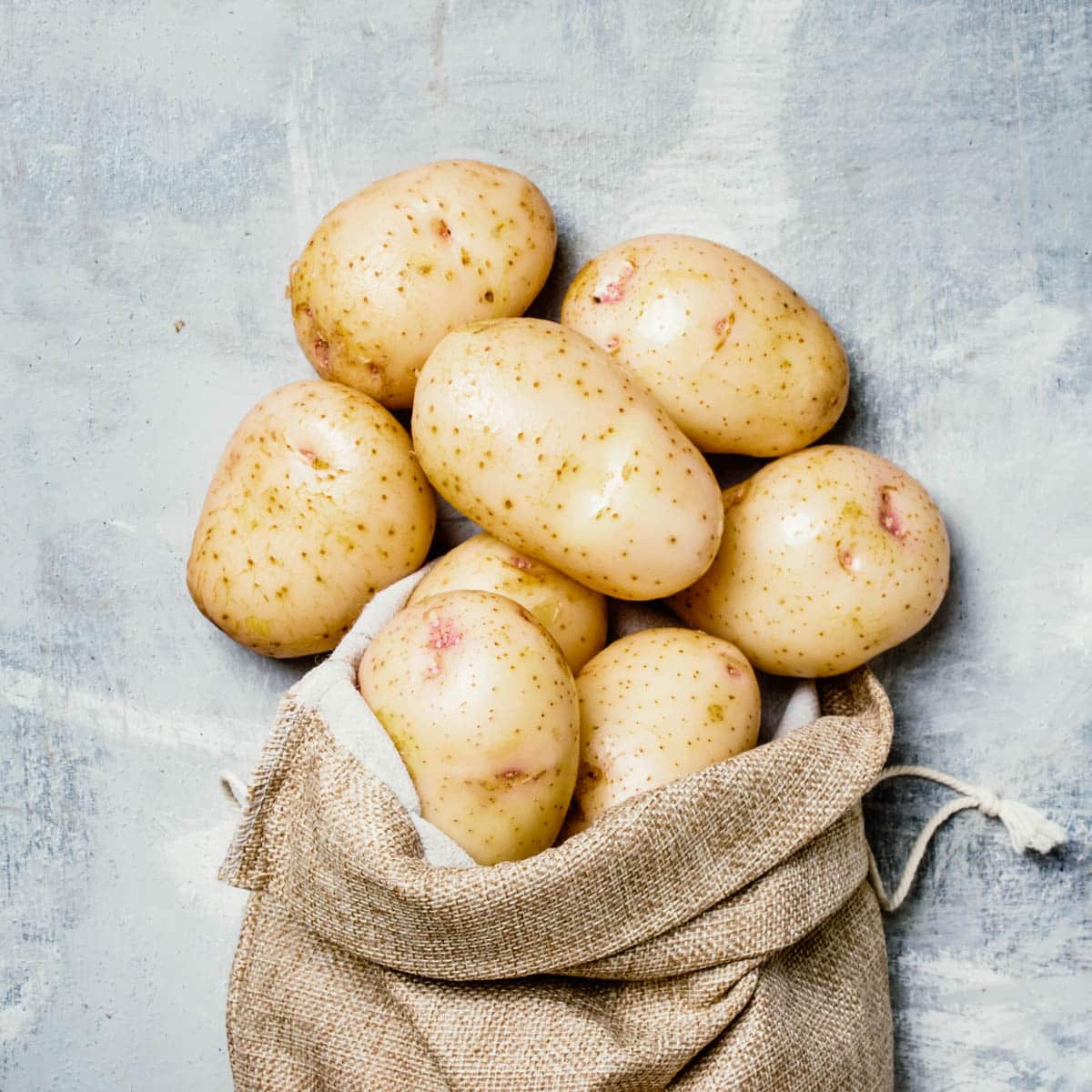
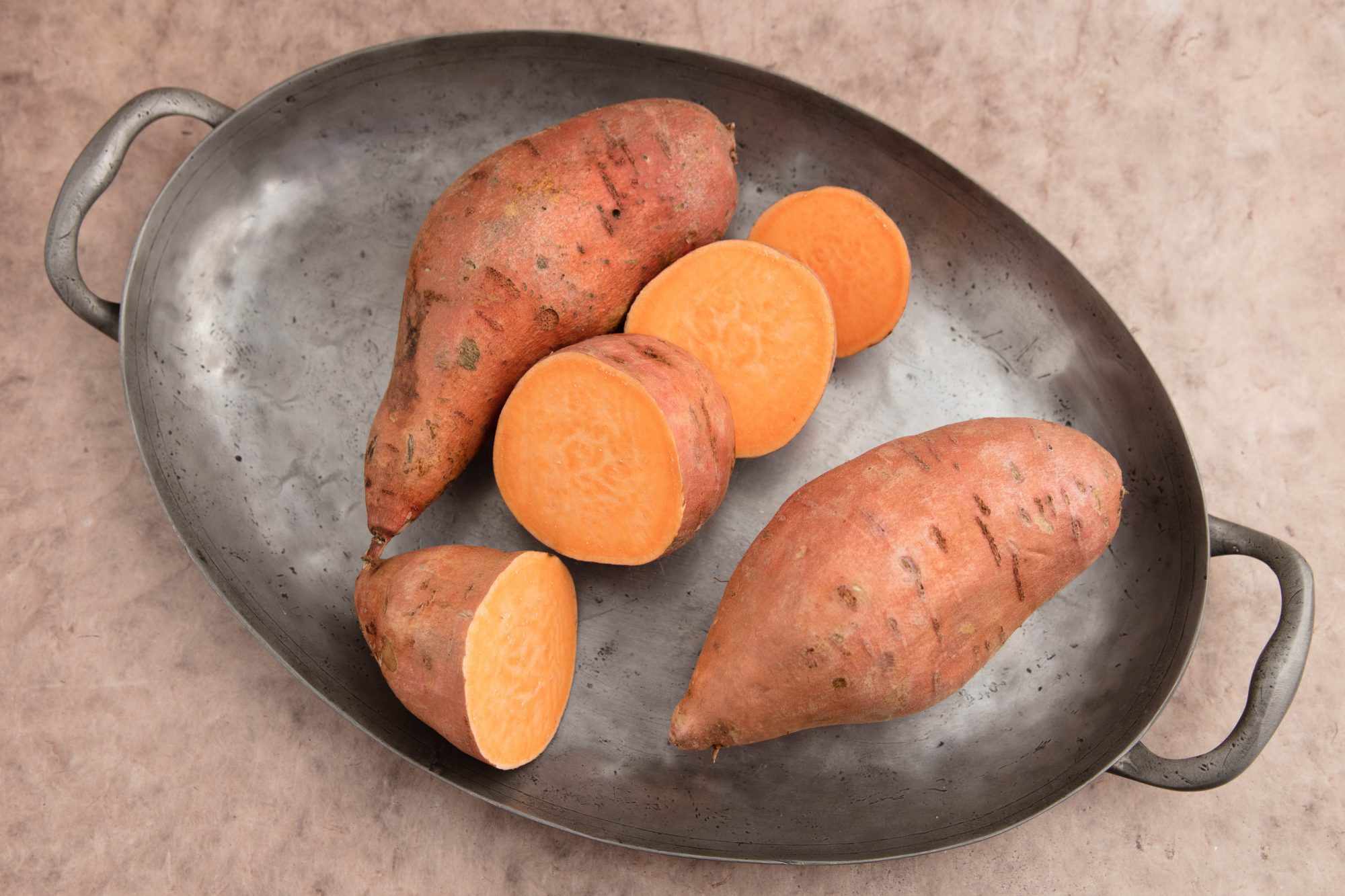
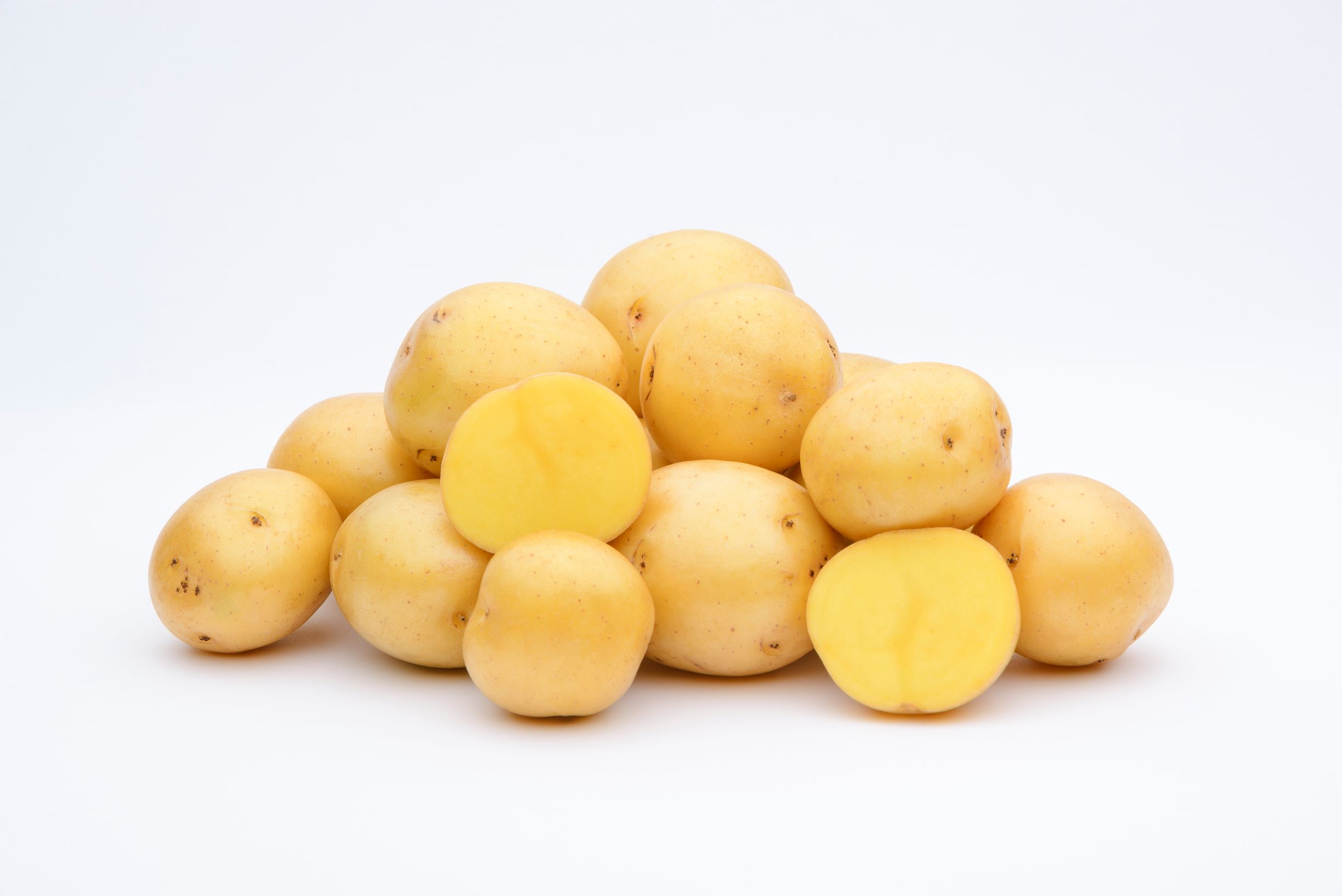



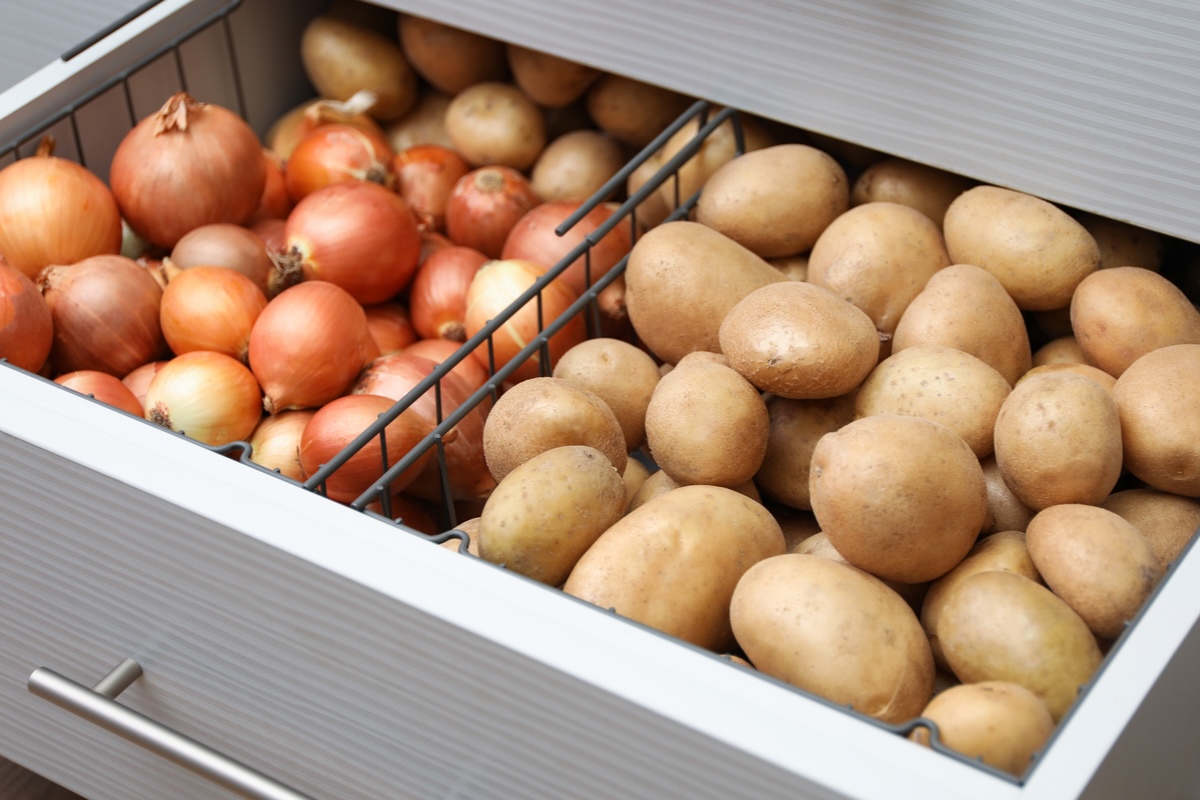
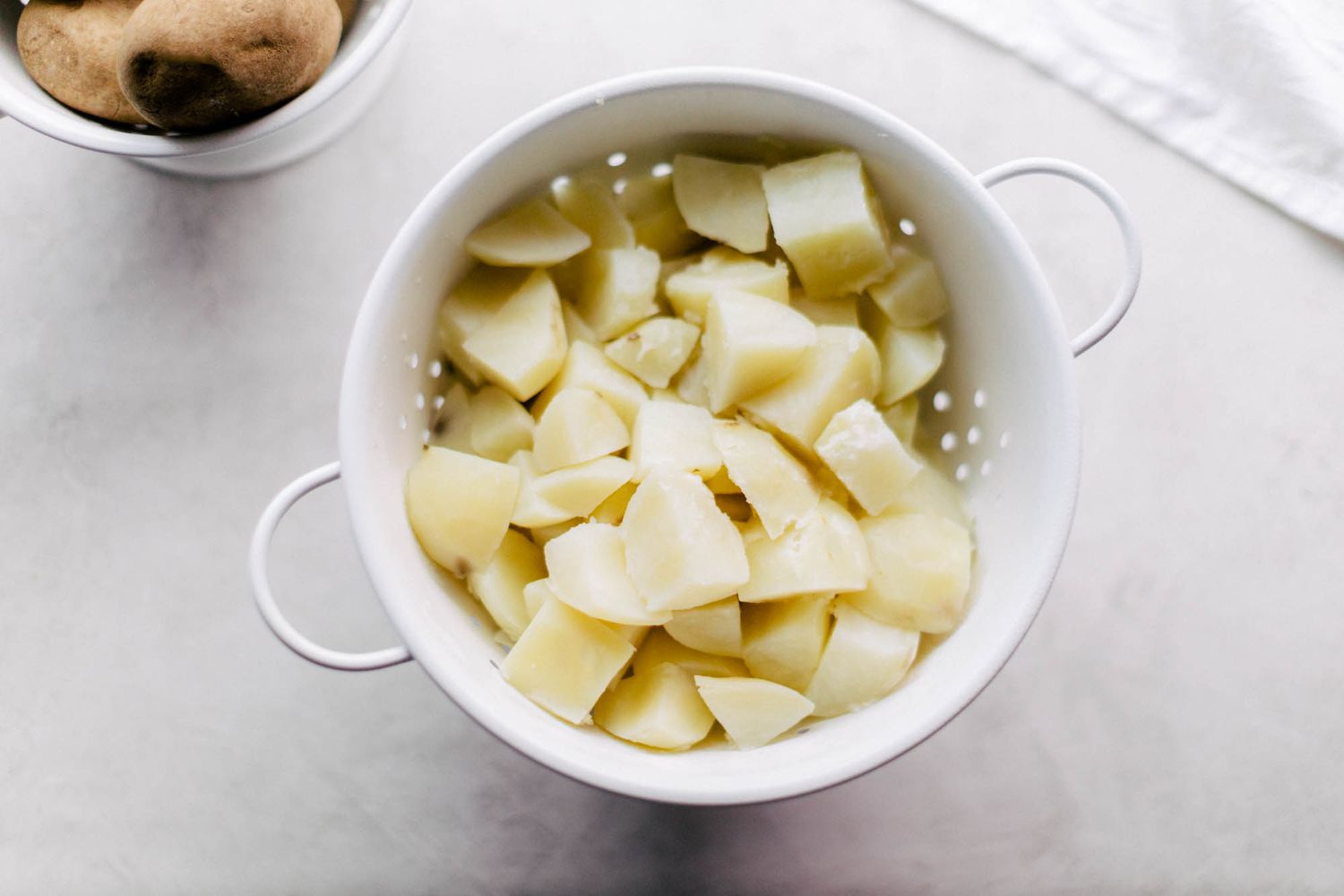
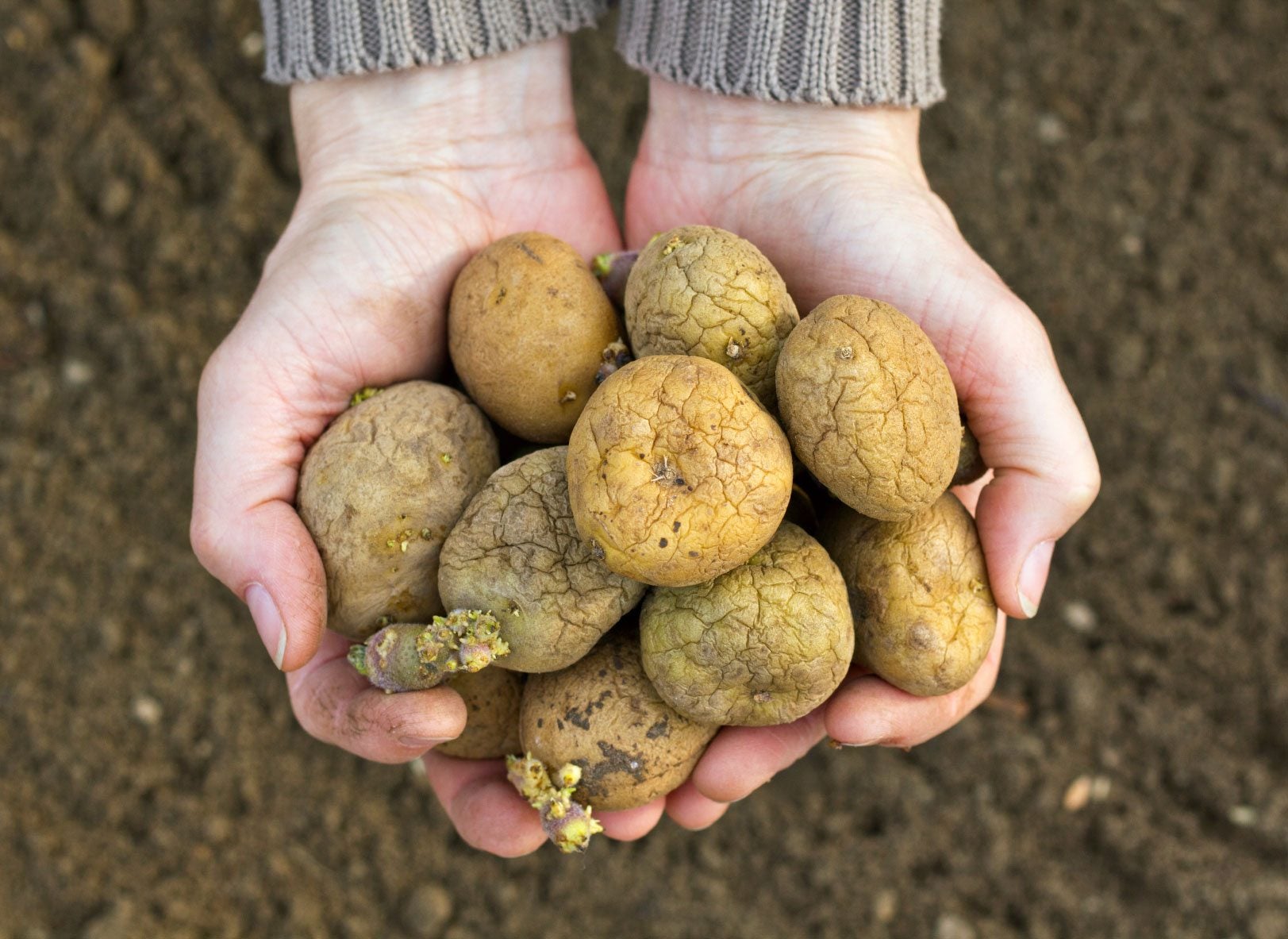
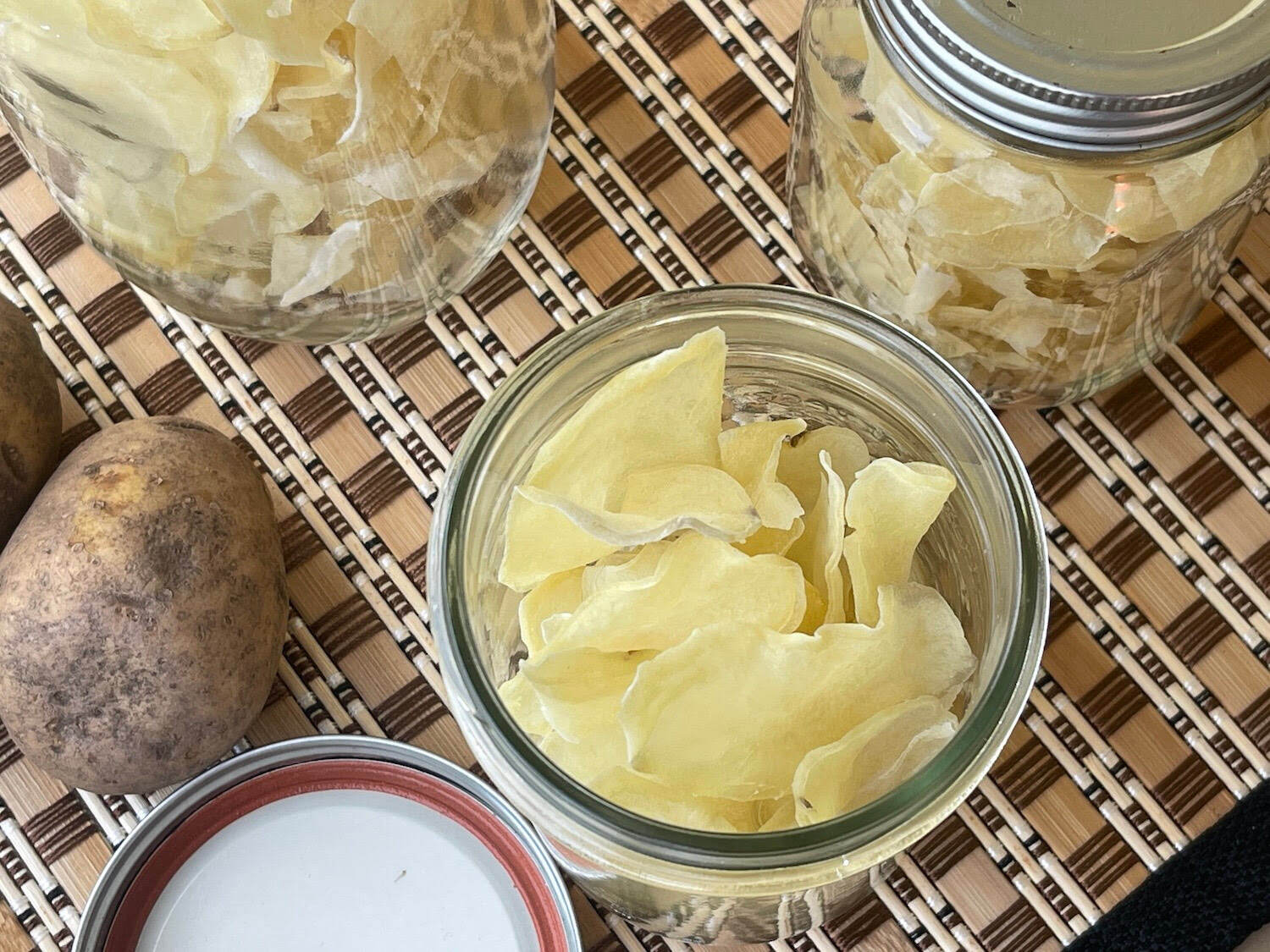
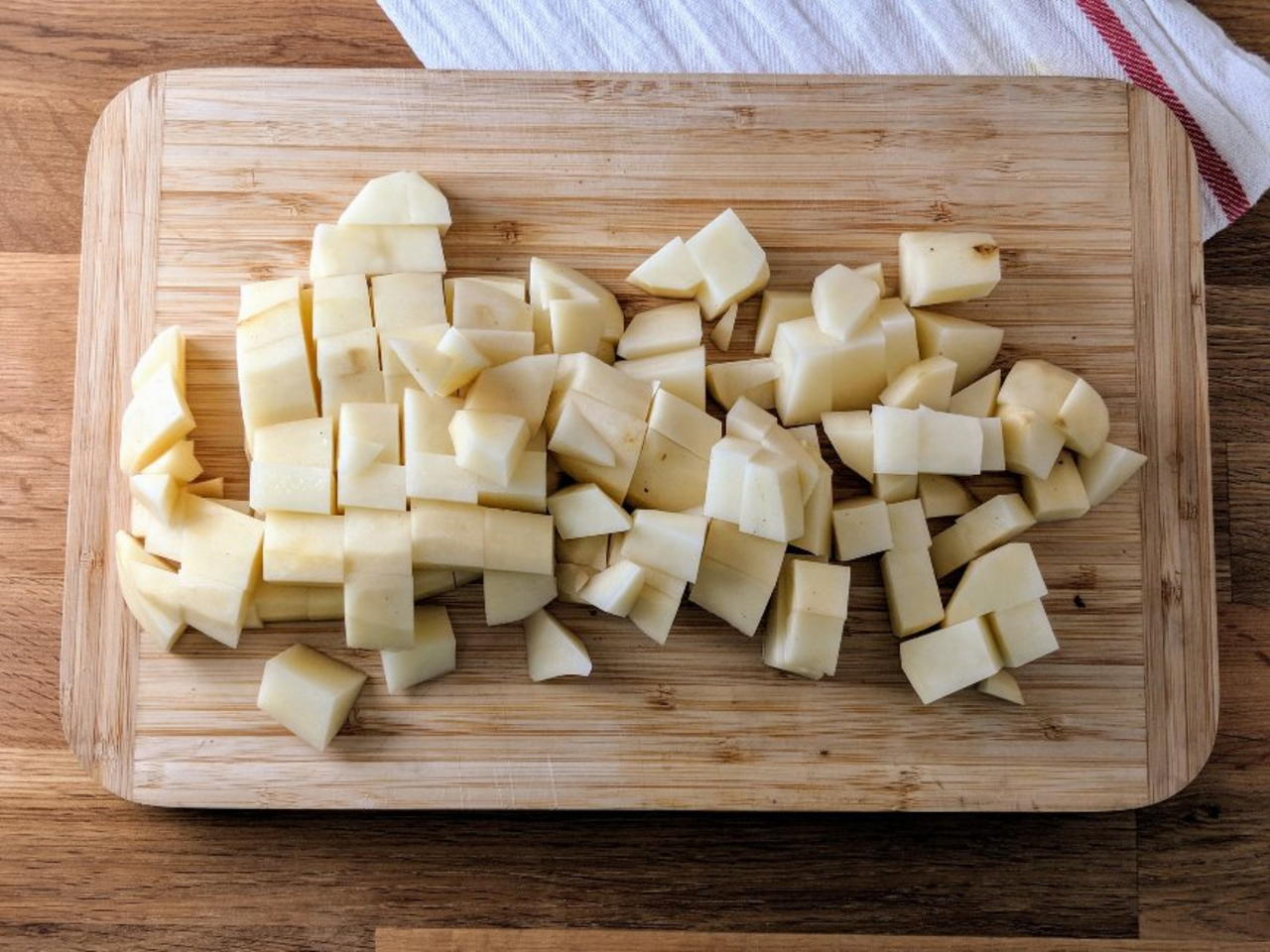



0 thoughts on “How To Store Russet Potatoes”